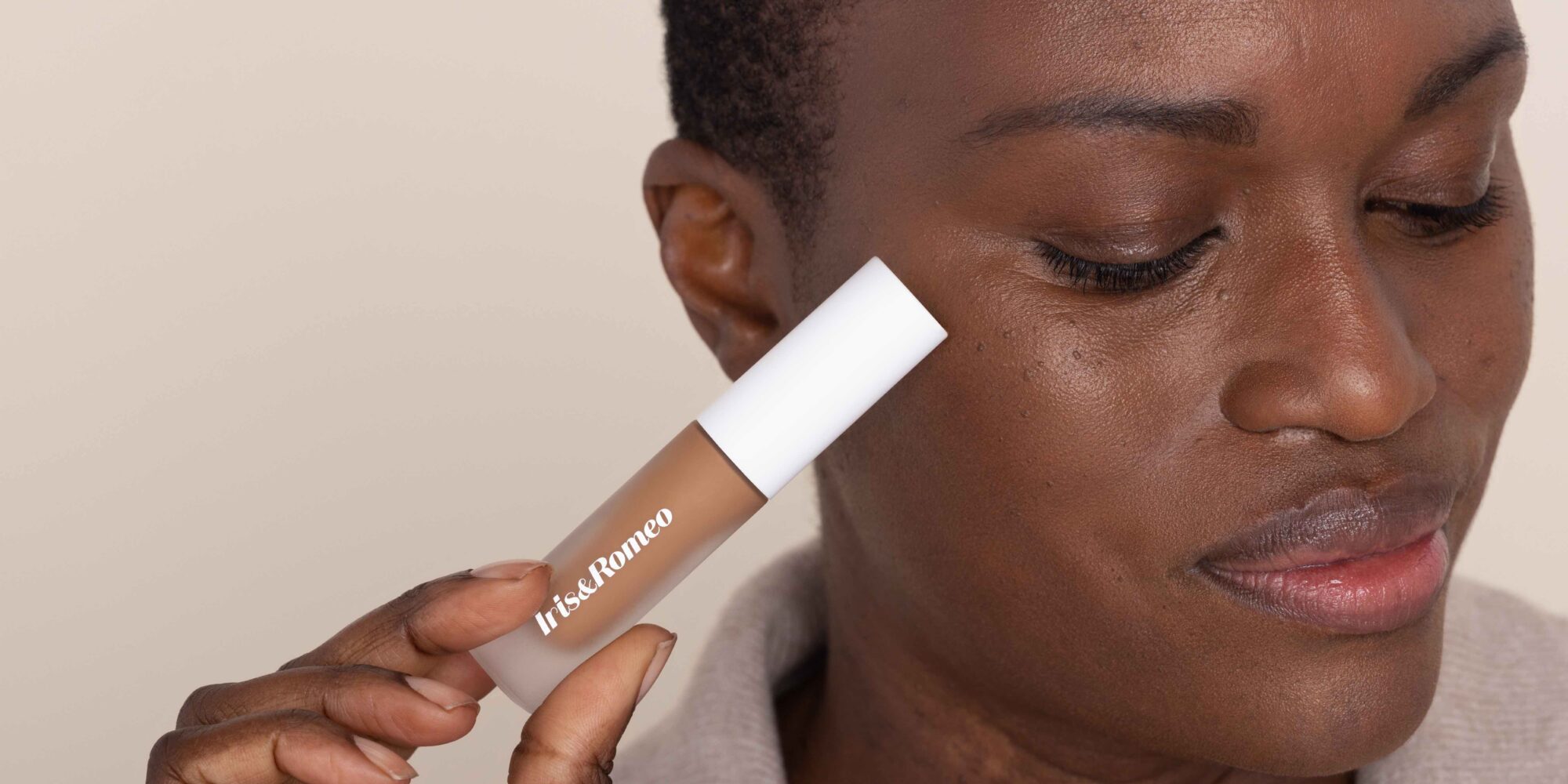
Iris&Romeo’s Michele Gough Baril On Making Room In The Beauty Industry For Women In Their 40s And 50s
If one of your main responsibilities is shoveling horse poop, it becomes pretty clear that an onerous multistep beauty routine isn’t a necessity. That was impressed upon Michele Gough Baril in 2012, when the former head of consumer marketing at Smashbox left a promising beauty industry career to tend horses. Returning to the beauty industry in 2019 in an entrepreneurial capacity as founder of Iris&Romeo, she committed to helping women, particularly those her age—she’s in her 50s now, but was in her 40s in the midst of developing the makeup-skincare hybrid brand—streamline their beauty routines.
Iris&Romeo launched with a single product, $48 Best Skin Days SPF 30, which is designed to deliver natural coverage, skincare benefits and sun protection. Its newest product, $32 Best Skin Days Treatment Concealer, builds upon the themes of beauty simplification Best Skin Days laid out by melding properties of a concealer with properties of an eye serum. The products are available Credo, Iris&Romeo’s first retailer. The brand has raised $6 million in funding, and retail expansion is in the cards for it in the not-too-distant future.
Beauty Independent checked in with Gough Baril about Iris&Romeo’s future expansion, her beauty regimen, changes in the indie beauty landscape, product inspirations, ageism in the beauty industry, what it’s like to spearhead an emerging brand as a middle-aged woman, and how she’s fostering a supportive work environment.
Why did you want to become an entrepreneur?
I was just really inspired to create change. I had left Smashbox to go on a wellness journey. I call it a journey back to myself. Coming out of hustle culture, the girl boss era and fast beauty, I was feeling extremely burned out. I ended up quitting my career, rescuing a former racehorse [named Romeo] and living on the land freely in Northern California. I spent a year diving into self-care, clean living and figuring out what I wanted to do with this next stage of my life. I was at a critical reset moment.
I felt disconnected with what a lot of the beauty industry stood for: lack of inclusivity, lack of transparency, lack of sustainability. As a woman in my 40s, I didn’t see an opportunity to be cultivating later stories in beauty. I left and went to live on the land with the horses, and it was a very remarkable journey as I got to feel the interconnectedness of everything. You can’t live in nature without having an awakening about that, but I missed the industry. I love this industry because it’s about women and our journeys, and I had just been on one myself. I wanted to make an impact on my terms and see what I could do.
I started to think about this problem of excess and hustle culture. How do I solve for how busy women live? Best Skin Days came out of that. It’s about simplifying, paring down, and being more thoughtful and conscious about how we live our lives and invest our time. I think it’s very relevant for many women, but it was timed with the pandemic, so it became even more relevant.
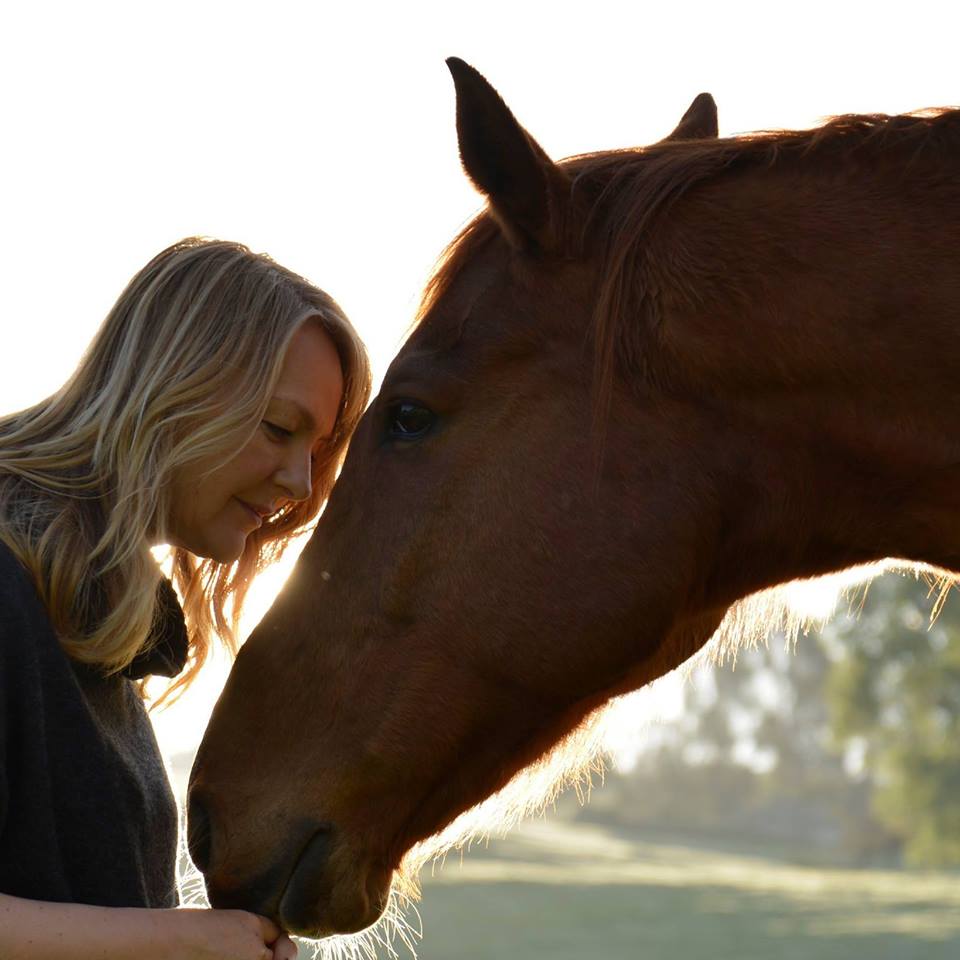
It still feels like ageism is rife in the beauty industry and beyond. How do you deal with that?
I think ageism is alive, and this industry has always been built around youth culture. The industry is focused on gen Z. If I were to start a gen Z brand, that personally wouldn’t be fulfilling for me because it’s about having a conversation with a younger audience, and not that there’s anything wrong with that, but is that a conversation I wanted to have?
We are not living like our mothers. We are in different times. I want to be having a conversation about how the world and the industry I changing, and how I can add value. I had to change my own mindset. I had to think about, I’m going to face ageism, and I may be considered too old and not relevant in the industry. I had to believe I have something to say out of my experience and wisdom. It was definitely not always a straight path. There were moments when I believed that and moments when I didn’t.
Somehow, I moved beyond worrying that I’m too old and just got lit up about the change I wanted to create. In raising capital, the numbers for women over 50 is pretty low, but I could focus on the numbers or I could just try and raise capital and see what happens. My husband says we are focused more on our eulogy values than on our resume values. When I hit that point, I just decided to give it a shot. What did I have to lose?
I spoke to investors about how the world is changing and how the brand could add value. The more passionate I became about it, the more excited the investors became. We just have to own our stories, own what we believe in and raise our voices.
What can the industry do to combat ageism?
It’s more than just a gray-haired woman that feels like tokenish. First of all, design products for her. Secondly, include her in the conversation and create narratives that are relevant to menopause and perimenopause. Young people are very plugged in and on social, and then there’s the silver hair army as I call them who are very vocal, but there’s nothing in between.
How do I talk to this woman in her 40s and 50s? Where is she? Maybe she’s too busy working and raising her family and doesn’t have time. But I think it’s about having authentic conversations around getting older, and it starts with the people who are creating brands because, if we don’t feel comfortable with it, how will anyone else?
How have you approached aging?
It’s fucking hard, I will just be honest. We live in a culture that is obsessed with not getting older. I do a lot of inner work. I do therapy to just accept as much as I can that my body is changing, that everything is changing. It’s a day-to-day practice of being kinder to myself.
It’s not always easy, and there’s definitely pressure to look young in this business, but I do feel that it’s changing. I think there’s a lot more opportunity to have these conversations. Normalizing them is the beginning. Four years ago if we talked, I don’t know if we’d have talked about these questions.
When will you take the next step in terms of fundraising for Iris&Romeo?
Most likely toward the end of the year. We’ve more than doubled our growth this year. We launched in Credo in February, and it’s been a success. We are in the top brands at Credo. We are looking to expand our retail footprint.
We are in a good place right now with capital, but you raise it at each stage of growth, and I imagine that, toward the end of the year, we will be expanding distribution, and at that point it makes sense to raise funds for that growth.
Some brands have been going down a distribution path of focusing on Credo and a beauty specialty retail chain like Sephora.
Sephora is a powerhouse. They have massive distribution, and they are incredible at launching indie brands. It’s definitely a clearer path, and when you have a little team, which we have, it’s difficult to have a very wide distribution strategy because you lose focus.
We really focus on how we are most efficient and the path that we can execute in a successful way. You have to stay narrow. It’s one of the hardest parts of founding a startup, but being very focused on where you are going is really, really important. That path is a traditional path because it allows you to focus, and it works.
How large is the team at Iris&Romeo?
When we launched right before the pandemic in late 2019, there were just four of us. For the first two years, we had triple growth year-over-year. I led all the product development. I’m a marketer and storyteller. For me, focusing on brand, creative, product was really where I wanted to be. Just over a year ago, we brought in Tara [Desai, formerly executive director of online strategy at Estée Lauder, as CEO]. She focuses on aspects of the business that aren’t my strength, so that freed me up to do what I love.
We have eight full-time people, four part-time people and two or three freelancers. We are still seed stage. We add on where it starts to overburden mostly me. We recently hired a director of marketing [Alison Blitzer] who came from Fenty, and we also hired a senior manager of content marketing [Lainey Mebust] who came from Ipsy so I can step back and focus on bigger initiatives that we want to do next.
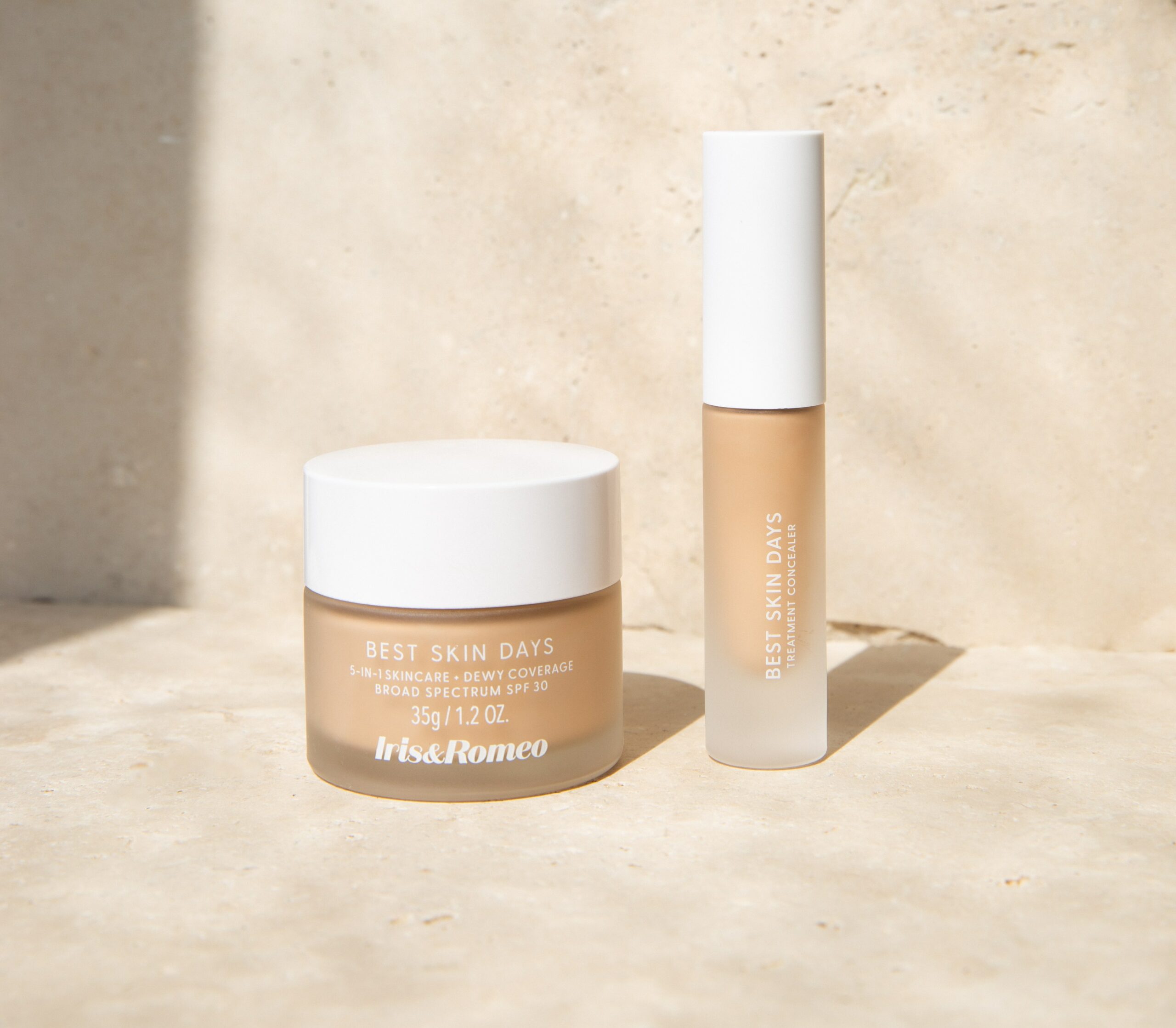
Can you tell us about the bigger initiatives?
I love to create things that have never been created before. They have to become hero products. I’m really obsessed with right now with the connection between our emotional and physical well-being, the impact of stress and burnout on our skin. I’m calling this emotional beauty. There’s a lot of conditions like eczema or rosacea that we know are connected to being stressed out. It’s not just a lack of certain minerals, vitamins or hormones in the body, but the emotional state. I’ve been exploring this and how we create something innovative there.
Our other big initiative is driving awareness. In the early stages of growing a startup, you are very much focused on survival and getting things out the door. It’s a lot of hustle. We are at this point where we have hired a few more people, and we are funded. I can look more at our mission and telling women’s stories. I want to do something impactful on cultivating women’s stories and really normalizing what’s been stigmas, whether it’s around aging, motherhood or other parts of the journey of womanhood.
Then, definitely, I have a big voice in where we go next in terms of retail expansion. I’ve been talking to a lot of retailers, and it’s really about finding the right partner who can support us through the next stage and where it feels like a natural fit.
You mentioned creating hero products. There’s been an 80/20 rule where 20% of a brand’s products traditionally are believed to generate 80% of the sales. Are you trying to launch products that contribute a certain amount to the business?
I never think about that 80/20 rule. I never think about, what’s the gap in the market? I don’t come from that place. I really come from what’s missing in my routine. How can I pare things down? How can I bring multiple products into one? How can I create one thing that’s very high performance and can do five things?
And I am obsessed with finish on the skin. I love complexion as a category, and how I can do it differently. I focus on my own skin at this stage. How can I make it look even more amazing? How can I incorporate the best of what’s happening in science and bring it into the formulas?
Best Skin Days was such an innovative product. When I launched it, nobody back then had done hybrid products in the clean space combining SPF, makeup and skincare all in one. I started the concealer at about the same time as I started developing Best Skin Days because I knew I wanted a sister product with more coverage, but with a weightless hydrating finish that moves with you and is never cakey. It’s a skincare product first. Everything we make has vitamin C and other skincare actives.
If I’m going to bring something into the world, it needs to be better than anything else out there, and it needs to simplify her routine. The concealer is a very efficacious eye serum, dark spot treatment and this gorgeous dewy concealer with an invisible skin finish. It’s the number one product we’ve been asked for since launch.
It’s for hyperpigmentation, dark circles, redness and blemishes, all the things I’m dealing with, and I’m excited for women over 40 in particular to use it because I think they’re really going to like what it does for their under-eye circles. What I’m most excited about, though, is the finish. It’s really this creamy, hydrating, luminous, second skin finish.
Do you have an expectation for what the new product will do for your business?
Our top sellers right now are Best Skin Days and Weekend Skin. We have really good [sales] distribution across all of our SKUs. That tells us that the customer is shopping our routine. It’s really unusual for beauty to have almost equal distribution. The expectation is that the Treatment Concealer will perform really well and be a hero product.
How do you see Iris&Romeo’s segment of the market shaping up going forward?
It definitely has gotten crowded. When I started, nobody was doing hybrids, and now a lot of brands are doing hybrids. It’s really important to go back to your origin story, find out what makes you unique, reconnect to the driving force behind the why and build out your brand story based on that. I’m focusing on the brand at this stage, and how can we really differentiate our storytelling? I feel blessed that I’m at a stage where I can step back and ask those questions.
I really want to be a brand that impacts the space. We make outstanding products. We have incredible repeat. We are in the high 40% range when it comes to repeat customers, which is just unheard of. People love our products and buy them again and again. For me, it’s about, what can we do to create change in this industry? That’s where I think we can really differentiate the brand.
What sort of work culture are you creating at Iris&Romeo?
I left hustle culture and founded a startup, which is kind of ironic. I’ve definitely had to check in with myself along the way around not burning out because this is not an easy job. You live it 100% of the time, but it’s been really important to keep a healthy culture. We don’t work weekends. We are mostly done by 6 p.m. at night. We have summer Fridays. We have no meetings on Fridays. We did this right from the get-go, and it was intentional.
A lot of the women on my team are married and have kids. We have lives outside of work. When something happens in the world that is distressing like a school shooting, we huddle, share and support each other. We are just really connected in that way, and it’s really important to me that I build a company with a very safe culture, and that everybody feels seen and appreciated. You’d have to ask my team if I’m delivering on that, but I’m absolutely 100% committed to it. I don’t want anyone burning out, including myself. It’s not necessary. We can work smarter, not harder.
How can we be a brand that talks about wellness if we are not living it ourselves? After I left Smashbox, I worked with founders. They were talking about empowerment and self-care, and there was not a single empowered woman taking care of themselves. I never want to be that kind of company. If we are going to talk about wellness—emotional wellness and skin wellness—it has to start with me. I have to live that and support my team through that as well. I think this is how women change industries.
How we create change is living it on a day-to-day basis. It’s the small things, not always the gigantic gestures that create change. It’s about building conscious companies that have more “female” qualities. It’s a very masculine thing to be driven, produce results and be very focused, and “female” values are around connection, support and community. They are not valued in business as much, and I think we are out of balance in the way we build companies. If I’m going to create change, it has to be holistically at every level. I can’t talk about it as a brand if I don’t have integrity about it myself.
How has the landscape changed for emerging brands since you conceived of Iris&Romeo?
What has changed is that brands have gotten very niche. There are brands focused on menopause like Stripes and brands focused on melanin skin. You find your niche community, really solve for their problem, and it helps build community and drive growth within that community before getting wider.
That’s one of the things that’s changed. It’s also harder to raise capital now in this economic climate, and the model has changed. When I started, I very much thought Iris&Romeo would be DTC. I wanted to build the brand through content and storytelling, and you do that best online.
The cost of acquisition went through the roof, and it was very hard to get to first-order profitability through DTC. When that happened, I said, “OK, I don’t know if this is the right path for us anymore, and we should consider a retail strategy because it’s starting to make sense financially for the business.” So, we shifted away from being DTC and started focusing on retail and omnichannel. So, that’s definitely changed.
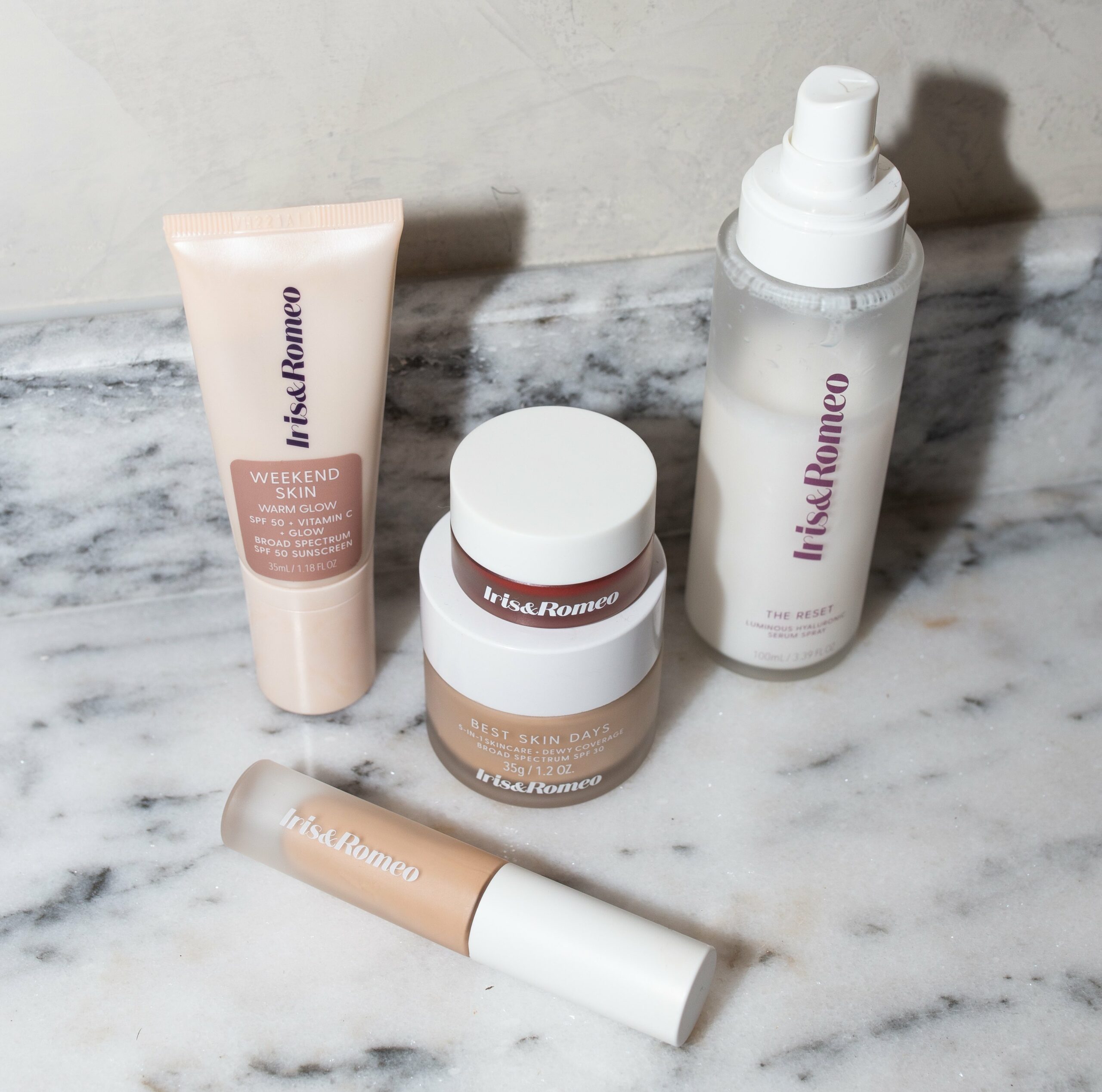
Has the customer base for Iris&Romeo changed?
When I started, I was like, there’s a white space to talk to women over 40. It started with that focus, and we really capture that customer. Our sweet spot is 35 to 55. She’s a busy working woman. She wants getting ready to be easy and effortless, and wants to do it in two products. She cares about what goes on her skin and body, and into the landfill.
That mindset is also the mindset of a 20-year-old and a 70-year old, and we definitely capture a customer across all ages, but with shared values. They want this effortless, barefaced look with a lot of hydration. I’m really interested in this narrative of the stages of womanhood and what we need at different stages of the journey, so this is part of the bigger vision about what impacts our skin and how we get ready, our routines. I think we’ve done a really great job of capturing a very wide group of customers.
What’s your routine?
I basically use six products every morning. I start with hydration, and I use our products. As I get older, it’s really about taking care of my skin barrier. Sometimes I’ve had rosacea and other skin conditions usually connected with stress, and that’s why I’m interested in burnout culture, how it’s impacting our skin and how we can help that. Most of our products are designed to support skin barrier health.
I have as simple rule. Your skin needs three things: Water to hydrate; oil or lipids like ceramides, butters and oils to lock in the hydration; and then protection to protect from the sun and external pollution. It’s not that difficult. If you do those three things, you will take care of your skin.
I don’t wash my face in the morning because it strips oils out of my face. I use an oil cleanser at night and splash my face with water in the morning. I spray on our product The Reset. That’s a yummy hydrating humectant that locks water into my skin to make it look plumper. Then I put on a new product I’m working on.
Before that product, I would normally mix together a moisturizer and oil to lock it all in, and I would put on Best Skin Days or Weekend Skin for some coverage to even out the skin tone and protect against environmental damage. Everything has to be swipe and go, and the Brow Up brow gel, Ceramide Multi-Balm and Power Peptide Lip Balm we make are all easy.
I can get ready in less than 10 minutes. I don’t want to spend a lot of time, but I want to look good. I am the lazy girl, and I’m English. I come from very low-key beauty. When I moved to America, I was always shocked about how much makeup women wear here, and how they did things like contouring and fake eyelashes. In England, we were lucky if we put on a little bit of moisturizer and lipstick.
Where do you see Iris&Romeo in five years?
I hope in five years we will be in a major retailer and have international distribution. I definitely want to go to the UK because that’s my home, and I know my mum would be really proud if Iris&Romeo—Iris is my mum’s name—were in the UK.
At the end of the day, what lights me up is when someone writes a review or I meet them at an event, and they tell me that they put on one of our products and it made them feel good about themselves. It’s really a simple thing, but on days where It’s really hard and I wonder why I’m doing this because it can be bumpy on this ride, that’s the thing that gives me an instant pick-me-up.
One of my girlfriends always says to me, whether it’s a great pair of shoes, glowing skin or a Ph.D., whatever gets you back to yourself is important, and there should be no value judgement on what that is. As women get back to ourselves and grounded in who we are, we can create awesome fucking change in the world. So, if a product can help them feel good, then I did something good in this world. That’s what it’s about.

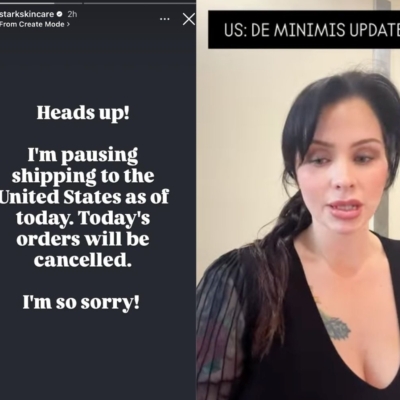
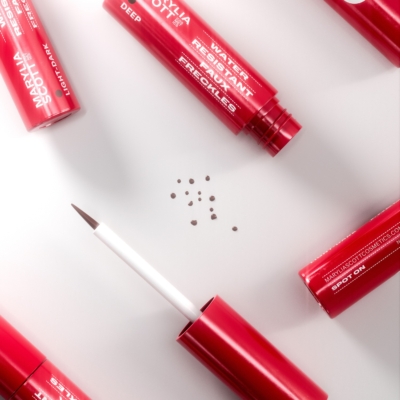
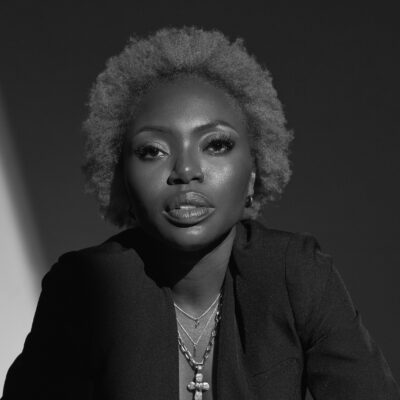
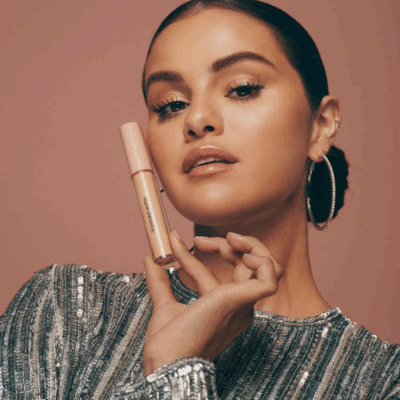
Leave a Reply
You must be logged in to post a comment.